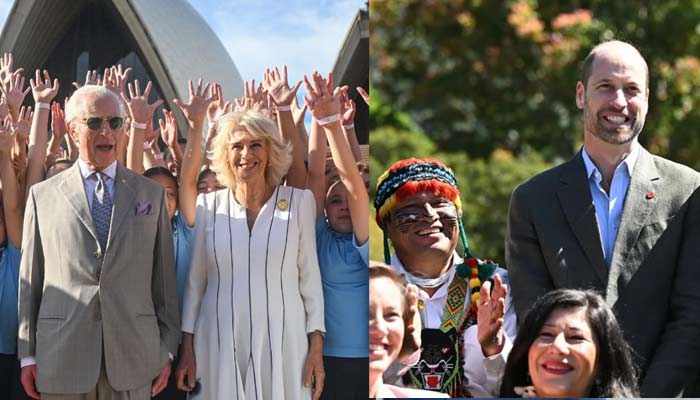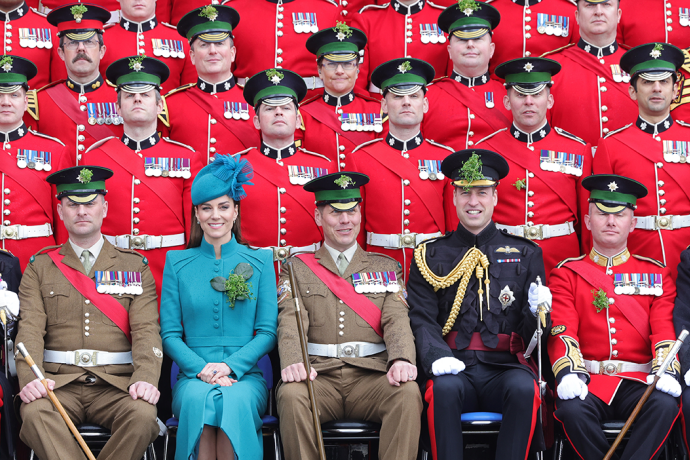In a significant royal ceremony, King Charles III has officially appointed his eldest son, Prince William, the Prince of Wales, as Colonel-in-Chief of the Army Air Corps. The ceremonial handover took place on May 13, 2024, at the Army Aviation Centre in Middle Wallop, Hampshire, in the presence of service members and senior military officials.
This appointment reflects the Prince of Wales’ continued involvement in supporting the United Kingdom’s armed forces and highlights a formal transition of royal military patronage from the reigning monarch to the heir apparent.
A Historic Appointment at Middle Wallop
According to the official website of the British Royal Family, King Charles passed on the role of Colonel-in-Chief of the Army Air Corps to Prince William during a special visit to the Army Aviation Centre. His Majesty had held the role since 1993, when he was still the Prince of Wales【Source: Royal.uk】.
The Army Air Corps is a vital element of the British Army, responsible for aerial reconnaissance, transport, and close combat aviation support. The handover event included an inspection of the troops, a presentation of the Corps’ history, and a demonstration of operational capabilities.

Prince William’s Military Background
Prince William has an extensive background in military service, making him a fitting figure for the Colonel-in-Chief role. He was commissioned as an officer in the British Army after completing training at the Royal Military Academy Sandhurst in 2006. He later trained as a helicopter pilot and served in the Royal Air Force’s Search and Rescue Force, completing missions throughout the UK.
His military service concluded in 2013, but his connection to the armed forces has remained strong. He frequently represents the Royal Family at military commemorations and has taken part in various ceremonial duties involving veterans and serving personnel.
_updates.jpg)
Role and Responsibilities of Colonel-in-Chief
The role of Colonel-in-Chief is a ceremonial military appointment traditionally held by a senior member of the Royal Family. It involves:
- Representing the Corps at official functions
- Attending commemorations, parades, and military anniversaries
- Maintaining a symbolic link between the royal family and the service branch
As Colonel-in-Chief, Prince William will now serve as the honorary head of the Army Air Corps, supporting the unit through official engagements and fostering morale and recognition for service members.
King Charles’ Reflections on the Handover
In remarks shared by royal.uk, King Charles expressed pride and a sense of nostalgia, having served as Colonel-in-Chief for over three decades. The King commended the professionalism and dedication of the Army Air Corps during his time in the role and welcomed Prince William as his successor.
The King also spent time with Army Air Corps personnel during his visit, thanking them for their service and highlighting the essential role they play in national defense and military operations.
Alignment with Other Royal Military Patronages
This appointment is part of the Royal Family’s ongoing engagement with the British Armed Forces. Multiple senior royals hold honorary military titles across the Navy, Army, and Air Force, which serve to maintain ceremonial ties with the forces and recognize their contributions.
Prince William also holds several other military affiliations, including:
- Commodore-in-Chief of the Royal Navy Submarine Service
- Honorary Air Commandant of RAF Coningsby
These ceremonial roles are a longstanding tradition in the UK, emphasizing the monarchy’s enduring support for the military.

Prince William’s Continuing Public Service
In addition to his ceremonial duties, Prince William is involved in numerous charitable and public service initiatives. Notably:
- He is the founder of The Earthshot Prize, launched in 2020 to address global environmental challenges.
- He supports mental health programs through The Royal Foundation, working on initiatives that raise awareness and promote support for mental health services.
- He advocates for veterans’ welfare and early childhood development, two areas that remain central to his charitable focus.
His public role continues to evolve, reflecting both royal tradition and contemporary public expectations.

Recognition from the Armed Forces
Senior figures within the British Army welcomed the appointment. In official coverage and statements, military personnel expressed appreciation for the continued involvement of the Royal Family in recognizing the contributions of soldiers, aviators, and support staff.
The Army Air Corps, in particular, acknowledged the significance of the handover and affirmed its commitment to working closely with Prince William in his new role.
A Strengthened Relationship Between Monarchy and Military
The British monarchy has long maintained close ties with the UK’s armed forces, with members of the royal family often holding ceremonial ranks and supporting military charities. The passing of this role from King Charles to Prince William continues that tradition and strengthens intergenerational ties between the monarchy and military institutions.
As monarch, King Charles remains Commander-in-Chief of the British Armed Forces, while members of his family fulfill supporting ceremonial functions that uphold the Crown’s connection to the service community.

Public Reaction to the Appointment
The appointment received broad media coverage in the UK, with major outlets such as the BBC, The Times, and People Magazine reporting on the event. Public response has been largely positive, recognizing Prince William’s military service and his ongoing dedication to national and international causes.
No official commentary or speculation has been made regarding any connection between this appointment and other family members or past military roles. The focus of coverage remains on the ceremony itself and Prince William’s readiness for this new responsibility.
Conclusion: Continuing a Royal Legacy of Service
Prince William’s formal appointment as Colonel-in-Chief of the Army Air Corps by King Charles III marks a meaningful moment in the continuity of royal tradition. It emphasizes the enduring connection between the monarchy and the military and acknowledges the Prince’s experience, service, and commitment to public life.
This honour further strengthens Prince William’s role within the royal family, aligning with his growing list of ceremonial and charitable responsibilities. As the Prince of Wales steps into this new chapter of royal service, his engagement with the armed forces reflects a blend of tradition, duty, and modern leadership.
Sources (Verified):
- Royal.uk – The King Hands Over the Role of Colonel-in-Chief
- BBC News – Prince William Takes Over Army Role from King Charles
- People Magazine – King Charles Awards Prince William New Military Role
- The Earthshot Prize – About the Initiative
- The Royal Foundation – Mental Health and Veterans Support

